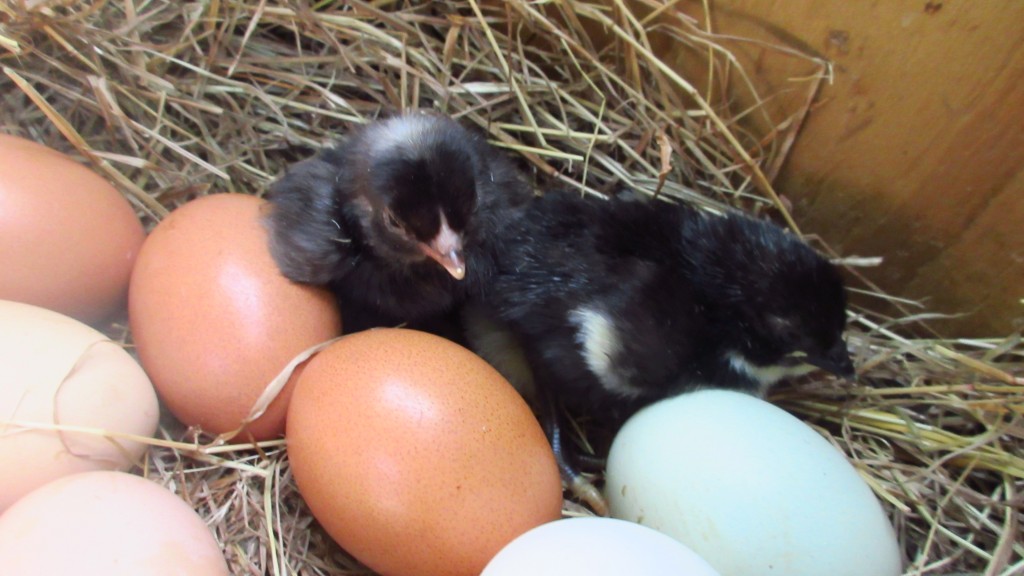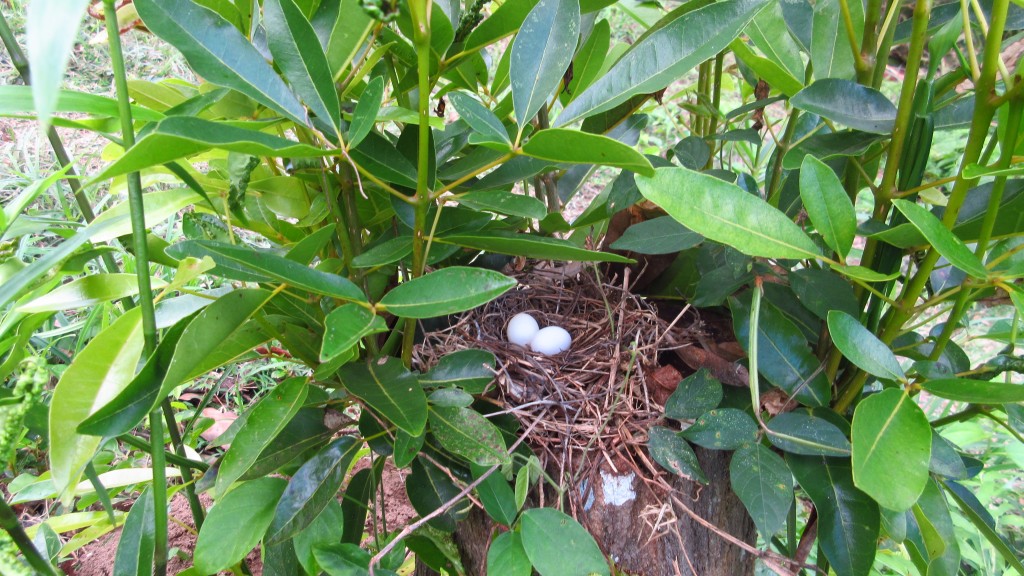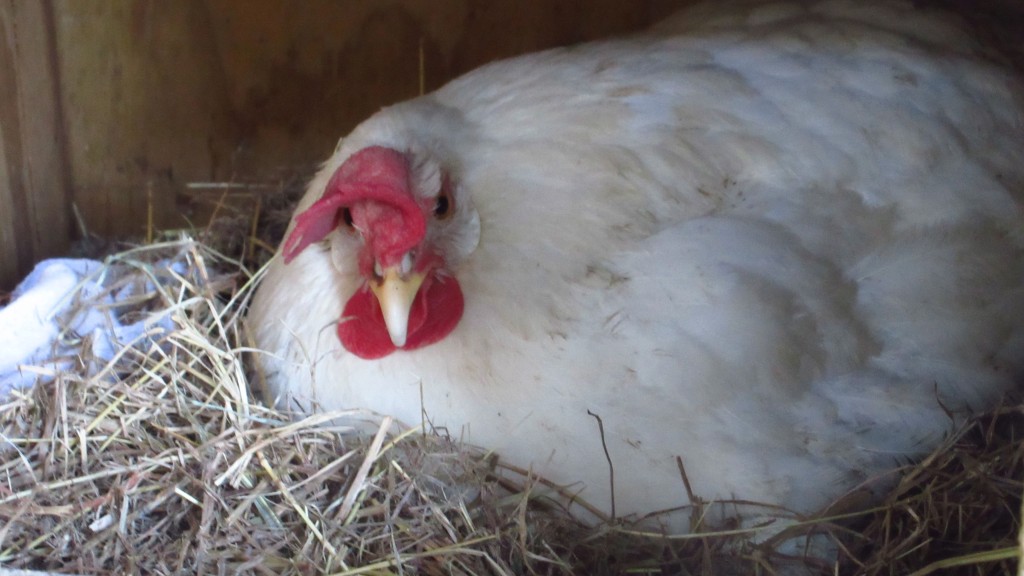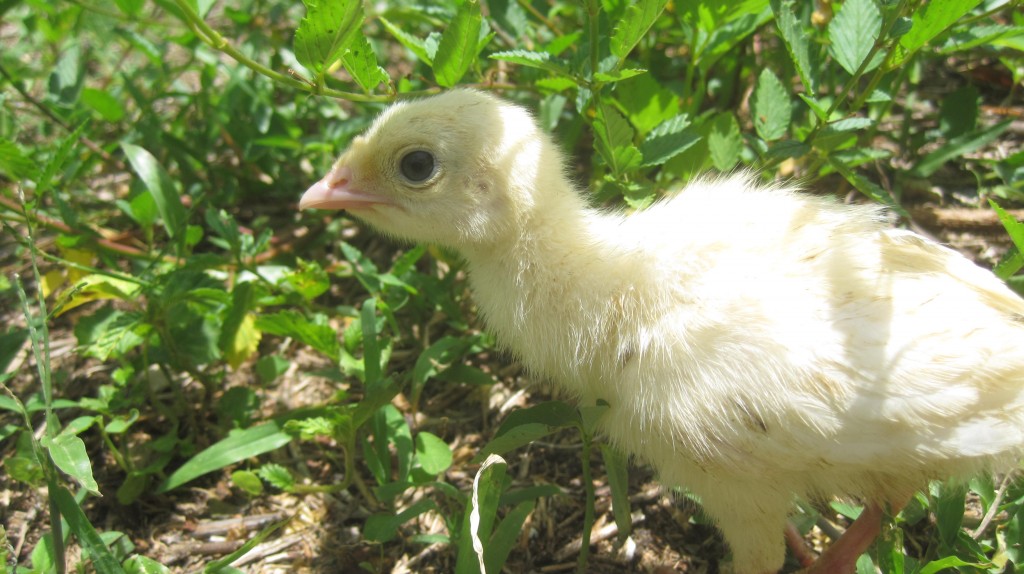Lately I have been checking on the broody hen more and more because according to my calculations, the 21 day incubation period was coming up quick. One evening when we were gathering the day’s eggs (not the incubated ones), I noticed that the broody leghorn was in the wrong box. This was a bad sign, because the eggs need to be constantly warm and who knows how long she was off the nest.
I looked in the forgotten nest and saw an egg with a dead chick embryo in it. There were ants crawling all over it. I am not sure if it was the ants that made the broody mama leave or what. I was bummed because the embryo in the egg looked just about fully formed with feathers and everything. We weren’t sure what to do with the rest of the nest of eggs since she had been off it for probably around 4-5 hours or so (since we had last checked) and they may no longer be viable but we decided to clean out the dead chick and ants and then put her back on the rest of the eggs and see what happened.
Well, yesterday I checked on her again and I thought I saw a little black fuzz ball and some chirping coming from under the Leghorn. It was hard to tell, so I ran and got Britton to help me check. And look what we found!
In this video you can see that we just lifted her up and one of the chicks fell from under her wing and then I noticed another one in the corner of the nest.
We are so happy to see this second generation! It is all a big experiment. We have had chickens for a long time, but adding in a rooster and hatching out our own babies is all new to us. I think a few more in the nest will hatch hopefully in the next day or two. We are not sure what to do with these chicks and how involved we will be in the parenting. I think we will add some chick starter feed to the supplemental feed we give all the chickens (they mostly forage), but otherwise we are going to leave it to the mama bird to protect them. We anticipate some losses due to the hawks (and rats), but we are hopeful that with adult birds and roosters around, there will be fewer problems than we had with just a coop full of babies in the first generation.
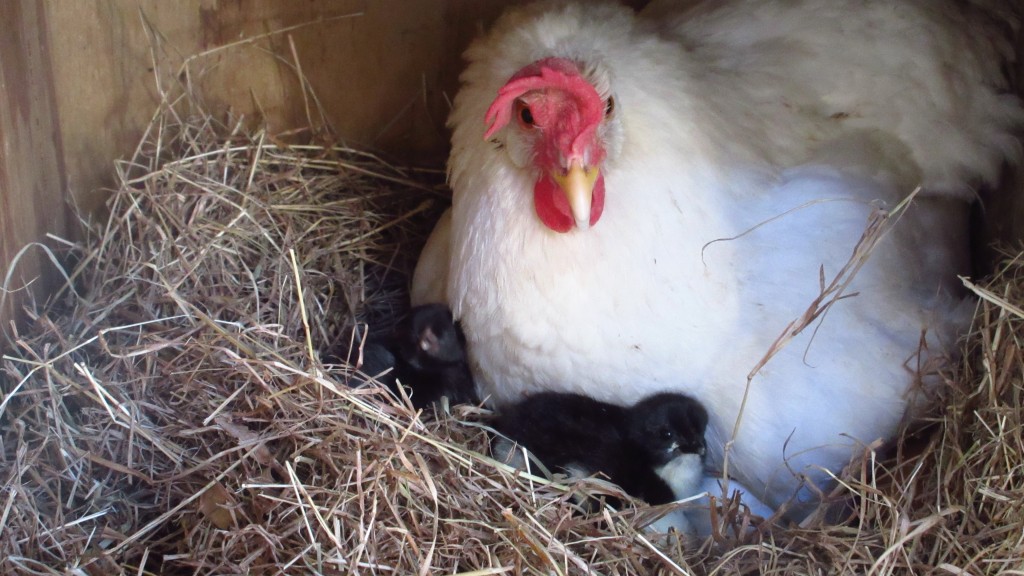
So sweet! The mama and her babies
Now the question is: where are all those turkey babies?

